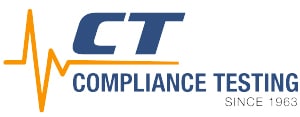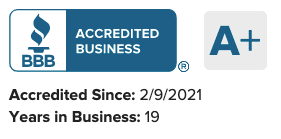Get Free Help From Our Engineers With IEC & EN Compliance
Need help complying with IEC & EN standards? We work with businesses and individuals worldwide, including in the United Kingdom, to achieve compliance with IEC and EN standards for electronics.
Click the “Talk to Our Team” button or call us on 866-540-5287 to ask our engineers your question about IEC/EN compliance, or request a free quote for testing and achieving IEC/EN compliance for your device.

As an electronics manufacturer, achieving compliance with international standards is a key part of accessing markets and selling your device.
Two of the most prominent, widely-used standards in the electronics field are IEC (International Electrotechnical Commission) and EN (European Norm) standards.
These standards set minimum performance, safety and design requirements for electronic and electrical devices, ranging from radiofrequency (RF) emissions and immunity to safety, ability to withstand impacts, and many other performance criteria.
Although IEC and EN standards are often very similar, there can be differences between these standards that you’ll need to know about if you’re aiming to achieve international compliance for your device.
Below, we’ve dug into the key differences between IEC and EN standards (as well as their many similarities) to help you achieve compliance with the standards that matter for your product and target market.
What Are IEC Standards?
IEC standards are industry standards for electronic devices that are created by the International Electrotechnical Commission. Founded in 1906, the IEC is a global organization that publishes international standards for electrical, electronic and related technologies.
Standards developed by the IEC are important for ensuring electronic devices have consistent, predictable performance worldwide. As such, they’re important for facilitating international trade and ensuring that electrical devices are safe and interoperable worldwide.
Why IEC Standards Are Important for Manufacturers
IEC standards cover a vast range of different electronic devices. For example, standards from the IEC apply to industrial technologies used in power generation and transmission, as well as consumer devices.
As a manufacturer, adhering to IEC standards means that your product can be sold and used globally. Many countries and markets base their own legal standards on standards created by the IEC, meaning compliance with IEC standards brings you closer to market access.
Differences Between IEC & EN Standards
There are several key differences between IEC and EN standards, including an international versus regional focus, differences in how each type of standard is developed, and significant differences in scope.
Regional Focus
IEC standards are global, with a focus on international standardization. EN standards, on the other hand, are developed by the European Committee for Standardization (CEN), with their focus primarily on European countries.
EN standards harmonize with European Union regulations and directives, making compliance important if you plan to sell your product within the European Economic Area.
However, as EN standards are not worldwide in their scope, they’re less important if you don’t plan to market your product within Europe.
Development and Adoption
IEC and EN standards are developed through a different process. IEC standards are created through a consensus of international experts. Manufacturers adopt them voluntarily, as there’s no legal requirement for IEC compliance in most countries.
In contrast, EN standards are mandated by European Union legislation. Once an EN standard has been ratified, it becomes a national standard in all EU member countries, with compliance essential for market access.
Within EU countries that use EN standards, the relevant EN standard overrides any conflicting standards, including IEC standards. Most EN standards began as IEC standards, meaning the standards are often technically similar in their requirements.
Scope and Application
In general, IEC standards have a broader scope than EN standards, covering a wider range of electrotechnical fields.
EN standards, while primarily based on IEC standards, may include additional requirements to comply with specific EU regulations and safety concerns. This means that a product that’s fully compliant with IEC standards may not automatically meet EN standards, and vice versa.
How to Achieve IEC/EN Compliance
Understand the Requirements
The first step in achieving IEC/EN compliance is to understand the specific standards that are applicable to your device.
As specialists in IEC and EN testing and compliance, our team can help you identify standards that apply to your device. Contact us online or call us at 866-540-5287 to discuss your device and how it may be affected by IEC and EN standards.
Implement Compliance Measures
Once you’ve identified the relevant standards, you’ll need to implement compliance measures throughout your device’s design and manufacturing process.
You’ll also need to conduct lab testing to verify that your device performs within the standards set out by the IEC and/or European Committee for Standardization.
As an accredited testing lab, we can perform testing for your device to ensure it complies with all relevant IEC and/or EN standards needed for market access.
Stay Informed and Up to Date
Standards, including IEC and EN, are continually evolving to keep up with recent advances in technology. As such, you’ll need to stay informed about updates to both IEC and EN standards to ensure your device remains compliant.
Regularly reviewing standards and participating in relevant industry forms can help you to stay ahead of changes and ensure your device remains compliant.
Contact Us About IEC/EN Testing and Compliance
IEC and EN standards are often similar — in fact, many EN standards are developed based on their respective IEC standards. However, there are some differences between these standards that you will need to be aware of if you’re aiming to achieve compliance.
As an accredited testing laboratory, our team can help you understand the standards that apply to your product and complete the relevant testing to achieve compliance.
To request a free quote for your device, or ask our engineering team any question about IEC or EN compliance, contact us online or call us at 866-540-5287.
Request a Free Quote From Our Team
Please enter your name, contact information, and any information about your device and the type of testing you need into the form below. Our team of engineers and compliance specialists will contact you as soon as possible with a free quote for your project.




